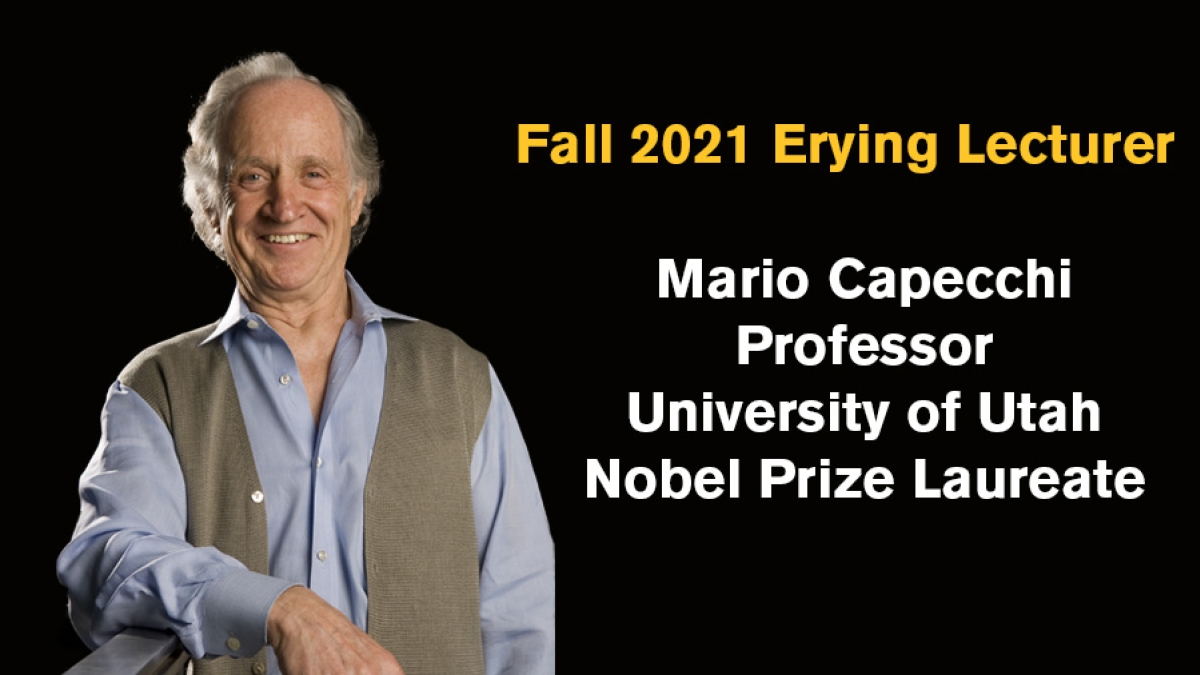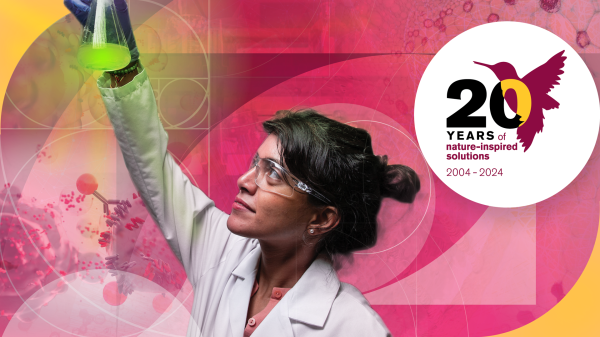Nobel laureate Mario Capecchi to deliver distinguished Eyring lectures at ASU

Mario Capecchi, Nobel laureate and distinguished professor of human genetics and biology at the University of Utah, will deliver the fall Eyring lectures at ASU’s School of Molecular Sciences.
Mario Capecchi is an Italian-born molecular geneticist known for his pioneering work on the development of gene targeting in mice. This technology allows creation of mutations in any desired gene, giving virtually complete freedom to manipulate the genome of living mice.
Capecchi’s work in this area revolutionized the study of mammalian biology and is used to understand countless diseases by scientists worldwide. He is a co-winner of the 2007 Nobel Prize in physiology or medicine, awarded as recognition of this achievement. He shared the prize with Martin Evans and Oliver Smithies.
Capecchi, distinguished professor of human genetics and biology at the University of Utah and a member of the National Academy of Sciences with many international awards, will be the featured School of Molecular Sciences’ Eyring Lecture Series speaker Nov. 4 and 5 at Arizona State University's Tempe campus.
The general lecture on Nov. 4, titled “The Making of a Scientist: The Unlikely Journey of a Young Street Rogue in War-torn Italy to Stockholm” will be presented in Armstrong 101 at 6 p.m. Zoom option: https://asu.zoom.us/j/87081218152.
Capecchi’s research achievements mean that an investigator has virtually complete freedom on how to manipulate the DNA sequences in the genome of living mice. This allows scientists to evaluate in detail the function of any gene during the development or post-developmental phase of the mouse. His current research interests include the molecular genetic analysis of early mouse development, neural development in mammals, production of murine models of human genetic diseases including cancers and neuropsychiatric disorders, and gene therapy.
The Eyring lectures are part of an interdisciplinary distinguished lecture series dedicated to stimulating discussion by renowned scientists who are at the cutting edge of their respective fields. Each series consists of a leadoff presentation to help communicate the excitement and the challenge of science to the university and community. Past lecturers have included Nobel laureates Ahmed Zewail, Jean-Marie Lehn, Harry Gray, Richard Smalley, Yuan T. Lee, Richard Schrock and, most recently awarded, John Goodenough.
The technical lecture, "Mutant Hoxb8 Microglia Are Causative for Chronic Anxiety and OCD-spectrum Disorders in Mice,” will take place Nov. 5 at 2:30 p.m. in the Biodesign auditorium.
The lecture series is named in honor of the late Leroy Eyring, an ASU Regents Professor of chemistry and former department chair, whose instructional and research accomplishments and professional leadership at ASU helped to bring the Department of Chemistry and Biochemistry into international prominence. The Eyring Materials Center and the Navrotsky Eyring Center for Materials of the Universe at ASU are named in his honor.
More Science and technology

ASU-led Southwest Advanced Prototyping Hub awarded $21.3M for 2nd year of funding for microelectronics projects
The Southwest Advanced Prototyping (SWAP) Hub, led by Arizona State University, has been awarded $21.3 million in Year 2 funding…

Celebrating '20 Years of Discovery' at the Biodesign Institute
Editor’s note: The Biodesign Institute at Arizona State University wraps up its 20th anniversary with the sixth and final…

Student research supports semiconductor sustainability
As microelectronics have become an increasingly essential part of modern society, greenhouse gas emissions, which are associated…